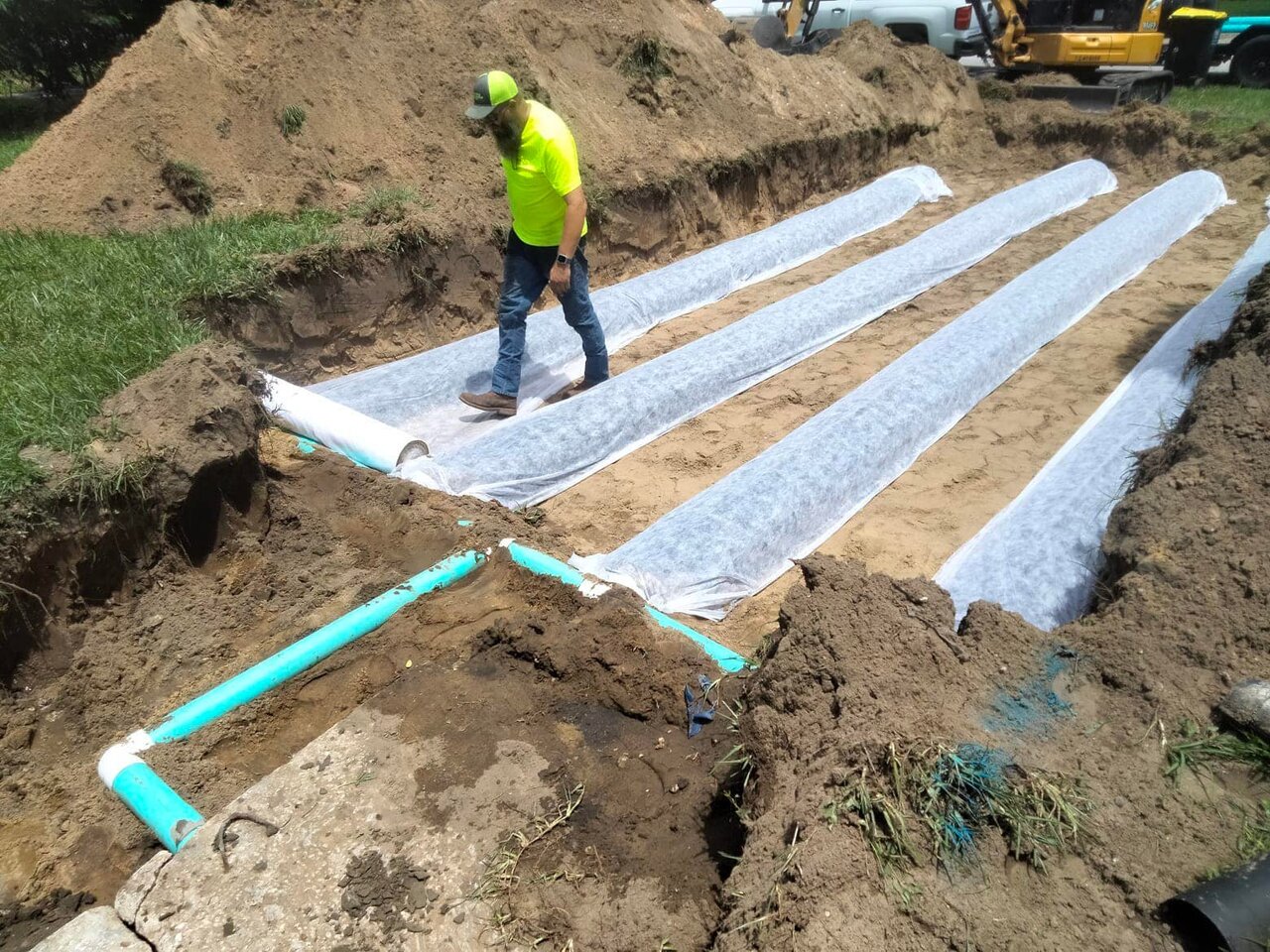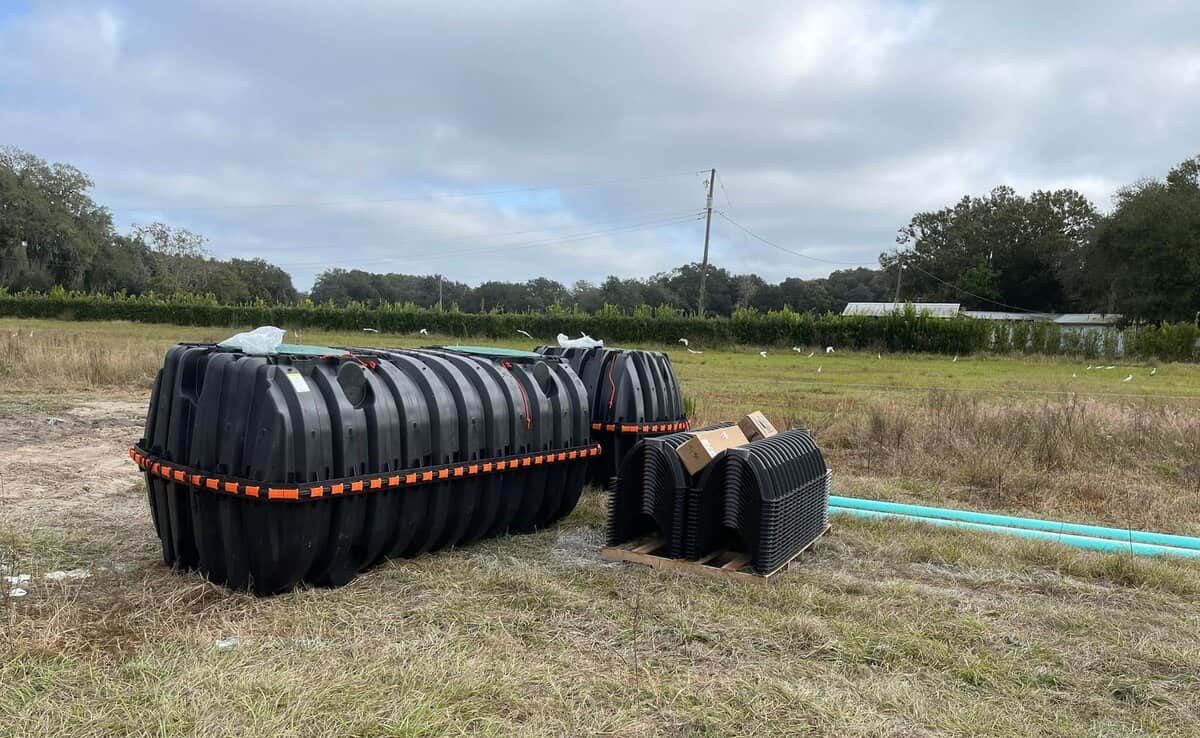As a pet owner, you want to make sure that your furry friend has a safe and clean place to live. This includes having a well-functioning septic system. Unfortunately, many pet owners are unaware of how their animal’s waste can impact their septic tank.
What Is a Septic System?
To understand how pets can impact your septic system, it’s important to first understand how the home wastewater-treatment process works.
A septic system is an on-site wastewater treatment system. It is typically used in rural areas where there is no access to a central sewer system. Septic systems are designed to treat and disperse wastewater from toilets, showers, sinks, and washing machines. They do this by using a combination of bacteria and enzymes to break down the waste.
The most common type of septic system is a gravity system. This type of system relies on gravity to move the wastewater from your home into the septic tank. The tank is typically buried underground and is made of concrete, fiberglass, or plastic. Once the wastewater enters the septic tank, it begins to separate. The solid waste will settle at the bottom of the tank while the lighter fluids will rise to the top.
In between these two layers is a layer of scum. The scum is made up of grease, oils, and other light solids that float on top of the water. The middle layer is called effluent and it consists of mostly water with some dissolved organic matter.
The effluent is then discharged from the septic tank into a drain field. The drain field is a series of perforated pipes that are buried in gravel. The effluent is slowly released from the pipes and absorbed by the surrounding soil.

What Are the Different Types of Septic Systems?
In addition to gravity systems, there are also pump systems and aerobic systems. Pump systems are often used when the natural slope of the land is not enough to allow gravity to move the wastewater from the house to the septic tank. In this type of system, a pump is used to move the wastewater from the house to the septic tank.
Aerobic systems are similar to gravity systems but they use oxygen to help break down the waste. This type of system often has a much smaller footprint than a gravity system.
How Does Pet Waste Affect a Septic System?
Pet waste can have a significant impact on a septic system. The waste from one pet can add up to over 30 pounds of waste per year. That is the equivalent of an additional person in your home!
When pet waste is not properly disposed of, it can end up in the septic tank. The solid waste will settle to the bottom of the tank and the scum will float to the top. This will reduce the amount of space in the tank for wastewater and could eventually lead to a backup.
In addition, pet waste can also introduce harmful bacteria into the septic system. These bacteria can break down the tank’s lining and cause it to leak.
How Can I Protect My Septic System From Pet Waste?
Here are some tips for ensuring that your septic system continues to function effectively with pets.
- The best way to protect your septic system from pet waste is to have a designated area outdoors for your pet to use the bathroom. This area should be at least 100 feet away from where the septic tank is located.
- You should always pick up and dispose of your pet’s waste properly. The waste should be placed in a plastic bag and then thrown in the trash. Do not flush the waste down the toilet. In addition to adding to the amount of solids being processed, dog waste can contain things like grass, rawhide, and hair that are problematic for septic systems.
- Do not flush kibble down the toilet or put it down your sink. This applies to human and other pet food as well, but kibble is particularly problematic because it can expand and congeal anywhere from the pipes to the septic drain field.
- Be aware of the ingredients that are found in the pet products you use. Some contain harsh chemicals that can have a negative impact on the beneficial bacteria in your septic tank, reducing the system’s ability to process waste. Flea and tick shampoos, for instance, often have dangerous chemicals in them.
- As with human wipes, pet wipes should not be flushed down the toilet, even if they say they are “flushable.”
- Do not flush pet hair down the toilet or drain. If you cannot bathe your pet outside, be diligent about ensuring that the hair does not go down the drain, since it can mat and create clogs.
One of the most important things you can do to maintain your septic system is to have regular septic service, including having the tank inspected and pumped regularly. This will help to keep the tank from becoming overloaded with waste and ensure that the system continues to function effectively.

“Doggy” Septic Systems
Some enterprising companies have developed special “doggy” septic systems that act like a miniature septic system for pet waste. If you have several pets, consider investing in one – or build one yourself using instructions easily found online!
Septic systems are a vital part of many homes but they need to be properly maintained. By following these tips, you can help to keep your septic system running smoothly for years to come.
Septic Service In and Near Lakeland
When you need a septic company in and near Lakeland, contact Septic and Drainfield Depot. As a licensed and fully insured septic company, we offer a full range of residential and commercial septic and drainfield services, including septic pumping and septic installation.
We are available 24/7 for septic emergencies and offer septic payments that can break the cost down into predictable monthly payments.
Contact us today for a free evaluation and estimate.







